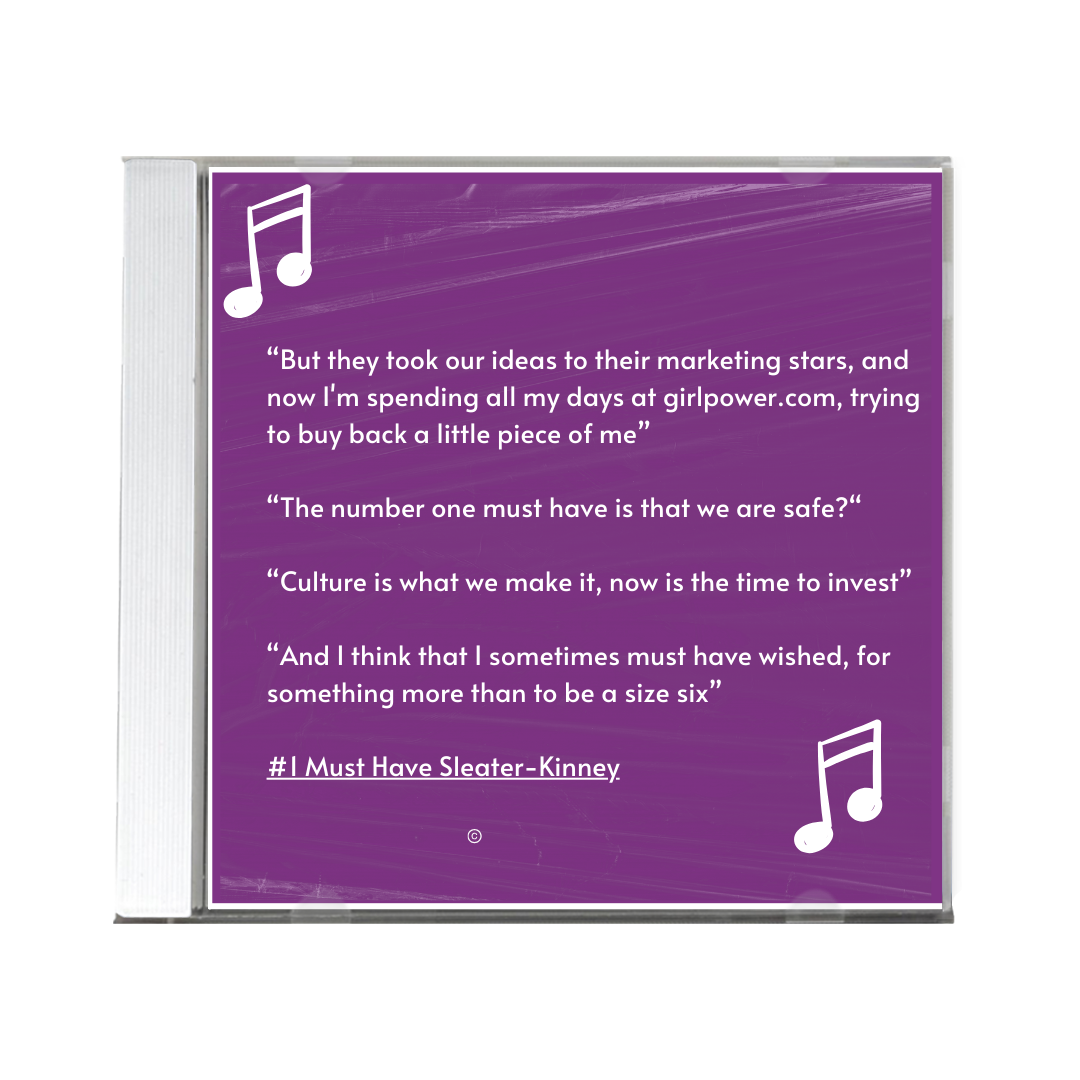
Punk not Barbie Women
08/03/2024


Punk music has traditionally been an art form that speaks out against oppression, with women being central to the culture of punk. Punk aimed to position women as leaders, empowering them Sleater-Kinney – #1 Must Have [. Alas over the years Punk sadly moved from creative rebellion to a stale marketing tool. This, however, should not distract us from what it was about, which was a rejection of an outdated morality and social code. The movement gave birth to strong women’s voices. The Godmother of this movement emerged from the US in the form of Patti Smith, who was both a poet and musician. Her voice encouraged women from both sides of the Atlantic to find theirs; to not simply sing a song written for them, but to become a voice of change. Music historian Caroline Coon said that, before punk, women in the rock industry were virtually invisible, however “it would be possible to write the whole history of punk music without mentioning any male bands at all – and I think a lot of (people) would find that surprising”. This power to create, to provoke and to bring change must be cherished.
The sad demise of so many drug services in the UK is that they were formed out of frustration, a deep-felt empathy for people who took drugs who were being criminalised and brutalised by the state. Throughout the globe women still face discrimination based on gender. Gendered perceptions of drug users exist in both mainstream and drug-using worlds. This is not new: Women’s Rights – Amnesty International. The stigma and shame experienced by people who use drugs is far worse for women as this goes against traditional character traits of perceived female identity. Women who are mothers face even greater stigmatisation and can find themselves marginalised from mainstream society. The stigma of drug use is greater for mothers since they are expected to be the caregivers, raise children, and be more family oriented than fathers. Women are usually aware of these double standards and try to present a good image to society by hiding their drug use, if they are mothers (Goffman, 1959). The voices need to be heard; the new punks must be given a stage. Central for this new wave to emerge must be the voices of women who have been silenced for too long.
Whilst those in the drug using community are subjected to stigma in general, there is an additional moral outrage and punishment that is directed at mothers who use drugs. Mothers are a particularly vulnerable part of the community of people who use drugs. Mothers can often be the victims of domestic abuse, often taking drugs to manage the trauma of coping. Harder to detect is that mothers can often be subject to coercive control, manipulated to raise funds or provide drugs to a drug using partner. Alas, mothers are all too often effectively excluded by harm reduction services which refuse to meet their needs or provide services they can trust. These factors can create significant social and emotional harm.
Can you be a good mother and take illicit drugs? The truth is, as Anna Millington (a drug user activist for mothers who use drugs) champions, of course they can be. It is not drugs that create bad parents, and it is not drugs that create criminals. The stigma often means that women who use drugs who have children are afraid to access support and professional services. Mothers face a societal sanction that leaves them uniquely vulnerable amongst the drug using community – the sanction of having their children taken into care. The uncomfortable truth is that too many of our services cater for men, where women are allowed to attend, as an afterthought. Not enough thought goes into how we should present services that are designed by and for women. When we look at treatment, the issues women face need to be central to what we say and do.
There are those rising to the challenge. A good example of this is in the commercial world of Exchange supplies, where they are designing equipment for women and supporting the voice of women in service delivery. I was impressed at a recent conference to see how they were designing needle packs inspired by women drug users. Woman to Woman by Exchange Supplies – hi-ground.org.
Women’s needs for treatment can often be overlooked and stigma has concerning health care implications for women who use drugs. The treatment world needs to hear, and then act, with women at the centre, to recreate our services. Punk women we need to take to the stage and rewrite the songs to take us forward to a better world.
Martin Blakebough, CEO of Kaleidoscope

Share
